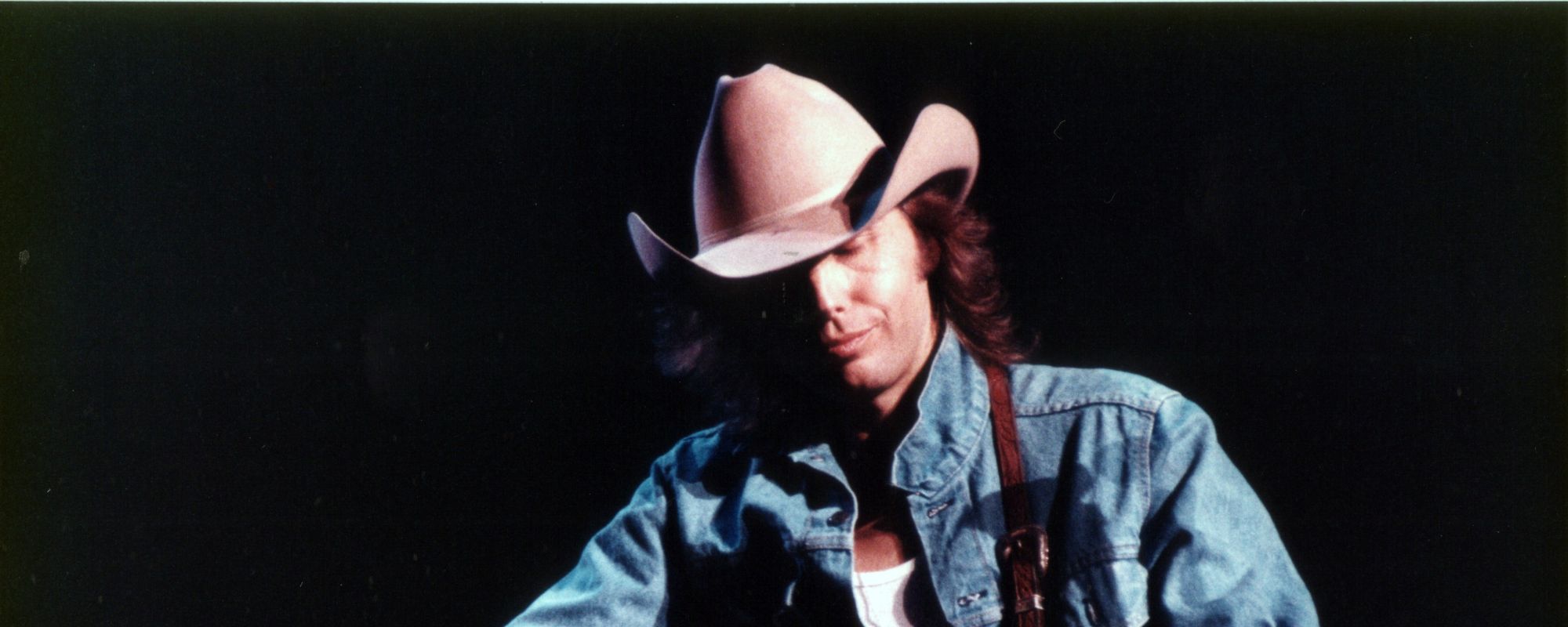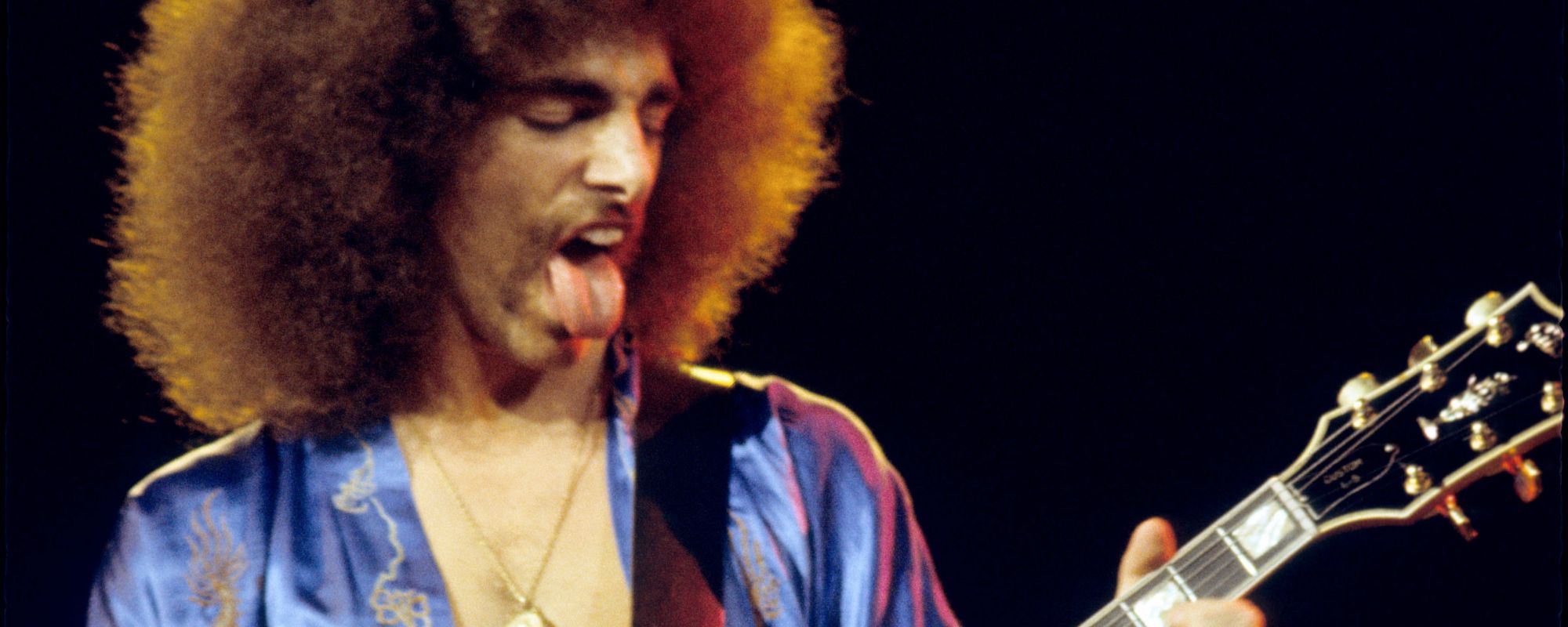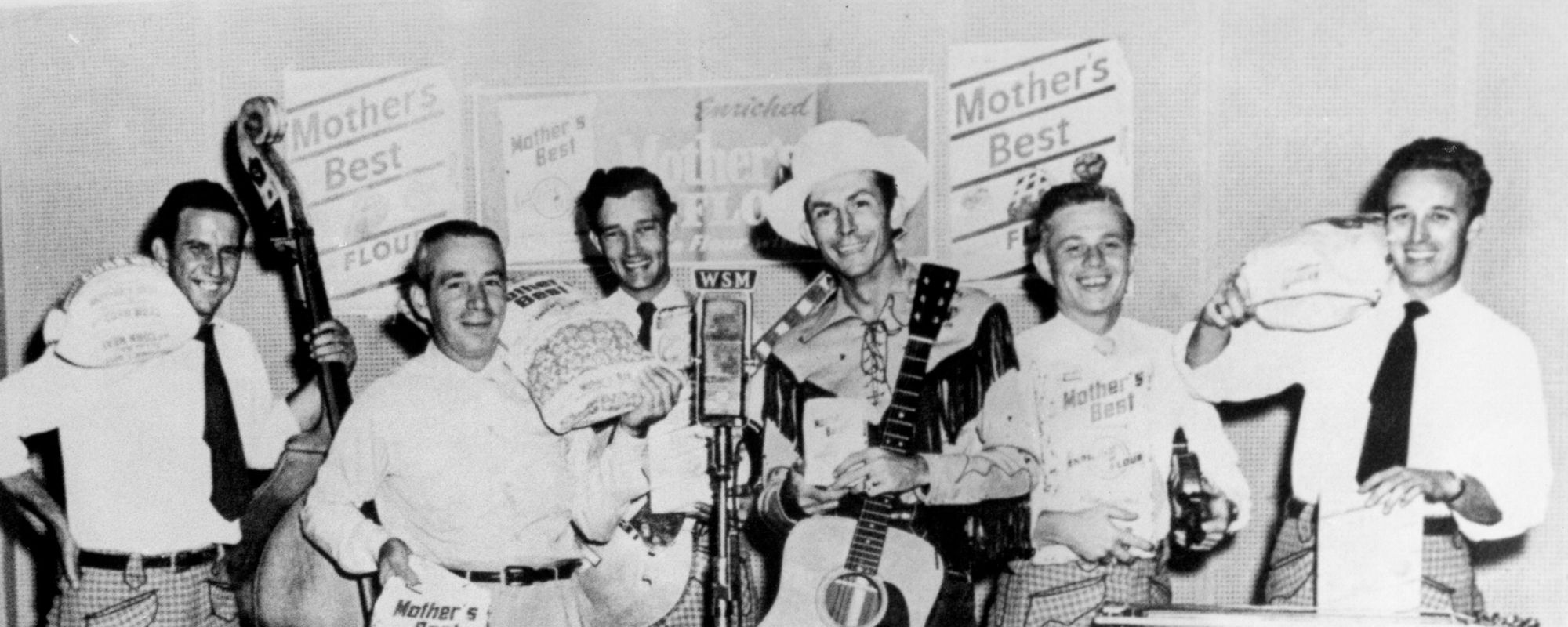Vince Gill wants to set one thing straight. He was joking when he said performing with The Eagles at Sphere Las Vegas was the most people he’s ever been ignored by. It’s not untrue, but he didn’t mean it in an unflattering way.
Videos by American Songwriter
“I’m a smart ass,” Gill tells American Songwriter. Choking on a potato chip, he paused to cough. “When I said, ‘The most people I’ve ever been ignored by,’ I meant it humorously. The Sphere is a spectacle unlike anything anybody has ever seen. And it sounds great. The arena itself has 164,000 speakers in it. It’s one of the greatest audio experiences people will ever hear.”
Gill is performing with The Eagles at Sphere Las Vegas through mid-April. After that, he has a new album and solo tour planned, culminating in another residency at Nashville’s Ryman Auditorium this summer. He’s also participating in NBC’s Opry 100: A Live Celebration, honoring the Grand Ole Opry’s milestone 100th anniversary, which will air March 19 at 8-11 p.m. ET and simulcast on Peacock.

2025 is full of milestones for Gill. Both the Opry and his mother are celebrating 100 years. His mama, Jerene, likes to say that the Opry started the day she was born, but Gill says her timing is a little off. This year marks Gill’s 50th year in music—and the 50th anniversary of The Eagles’ first No. 1 hit, “Best of My Love.” He feels the weight of The Eagles’ legacy.
“It’s what I get to be a part of,” Gill says. “Just keeping these songs alive and singing and playing them is powerful.”
Gill joined The Eagles in 2017 following the death of founding member Glenn Frey in 2016. Gill and Frey shared manager Larry Fitzgerald in the 1980s after The Eagles broke up. Gill was friendly with Don Henley from working with him on Henley’s Cass County album. At Henley’s request, The Eagles’ manager, Irving Azoff, contacted Fitzgerald about Gill joining the iconic band. Gill’s response? “When do we leave?”
Henley told Gill in confidence that he was the only person with whom he would have continued The Eagles. The comment meant the world to Gill, who says The Eagles have always been his favorite band.
“They’ve been around for 52 years now,” Gill says. “It’s a really amazing experience to see the set list go by every night and go, ‘Oh, OK, there’s ‘New Kid in Town.’ Oh, well, there’s ‘Desperado.’ Oh, there’s just ‘Hotel California’ and ‘Best of My Love.’”
Gill calls playing with The Eagles “a great learning experience.” He understands how important the band’s songs are. He also knows the superiority of those songs made The Eagles one of the most iconic bands in music history.
When Gill joined The Eagles, he asked Henley about the first song he and Frey wrote. Henley smiled and said, “Desperado.” Gill didn’t believe him.
“I told him, ‘You had to have written some crappy songs first,’” Gill says. “He started laughing. He says, ‘No, that was the very first song we ever wrote together.’ I said, ‘Boy, if something was ever meant to be, it would be that.’”
Gill gets emotional every night when they sing “Desperado.” He also loves playing “Rocky Mountain Way” with Joe Walsh. Gill remembers being 14 years old and strumming the song in his bedroom. Looking over at Walsh and ripping power chords on “Rocky Mountain Way” together feels surreal.
Being an Eagle led to another mountaintop moment for Gill in 2024. The Eagles backed up Paul McCartney when he performed “Let It Be” at Keep the Party Going: A Tribute to Jimmy Buffett at the Hollywood Bowl in April. Gill called McCartney a “giant hero.” While he’d met the Beatle a few times over the years, he still couldn’t believe that collaboration happened.
“I said, ‘You have no idea what this means to me,’” Gill recalls. “I said, ‘That’s the song that was playing the first time I ever slow danced with a girl.’ He smiled and said, ‘Well, I hope it worked out for you.’ I said, ‘No, it was seventh grade, a little young for that.’ But it was really cool.’”
His McCartney experience didn’t end there. Gill sang “Let It Be” for The Eagles while they were learning the arrangement. They were having a sound check before the show, and Gill asked the crew to let him know when McCartney showed up because he didn’t want McCartney to hear him sing his song.
“Sure as hell, he walked in, and they didn’t tell me,” Gill recalls. “I was singing, ‘Let It Be’ for all it was worth. He came over, gave me a giant hug, and said, ‘I believe you sing that song better than I do.’ I said, ‘Well, that’s not true, and you know it. But thank you.’ It was just cool that he got to hear me sing a little bit of it.”
A few months later, Gill got to play with Keith Richards when they honored James Burton, when he was inducted into the Country Music Hall of Fame.
[RELATED: Exclusive: Why Vince Gill Doesn’t Want the Eagles to Play His Songs]
“Then I’m playing with these Eagle boys,” Gill says. “These are the kinds of things you couldn’t dream up, you couldn’t think about, you couldn’t even put ’em on your radar. They just seem so not even possible. I just love when life does something to you that you never expected, and you’re just grateful.”
Gill left the Oklahoma home he shared with his parents 50 years ago and hasn’t looked back. He has no regrets, and that’s not only because his career is the stuff of legend. It’s because he knew he would play music for a living—even if that meant he was strumming a guitar in a bluegrass band at a Holiday Inn five nights a week.
“I love music so much, and it spoke to me so deeply that I felt just like my mom did,” he says. “I didn’t need a bank full of money. I got by. I tell people all the time, I say, ‘Hell, I was a nonprofit for a long time. I found out I didn’t eat much.”
At 18, Gill bought a pre-war Martin guitar and moved away from home. It was 1975, and the instrument cost $2,500, which Gill calls “a stupid amount of money.” He traded his guitar and wrote a check for $1,650, all the money he had saved for his future from all the gigs he’d played and even the money from his piggy banks.
“I spent every dime on this guitar, and I still have that guitar to this day,” he says, explaining his rent was $15 a month, and he knew his bluegrass gig paid $200 a week. “Away I went, and I never worried too much. As long as I could make the rent, I was good.”

Gill has always lived in the moment because that is all there is. He wasn’t hedging his bet on the future when he bought that guitar. He was trying to make the best decision he could at the moment, one that would help him play the best music, write the best songs, and sing as hard as he possibly could. He didn’t look ahead and never considered becoming a celebrity. Gill loved—and still loves—being a band guy. As his career unfolded, he played as a side man with different artists. Then he was a session guy. Later, Gill wound up being the singer for a band. Then he got interested in writing and recording songs and got a record deal.
“I was not the kid that posed in the mirror thinking he was Elvis, ever,” Gill says. “I just had my head down. I was trying to figure out how to play the guitar and sing.”
Gill doesn’t know when he knew his career was going to work. He didn’t think about it because it didn’t matter—he had no backup plan.
“It was all I was going to do,” he says. “I learned early on how to get by with nothing, and I’m talking nothing. And it was fine. I heard Willie Nelson in an interview once when the IRS took all his stuff. Someone asked him, ‘Does it bother you that you’re broke?’ He goes, ‘Hell, no. I’ve been broke before.’”
Gill never needed a backup plan. Over the last 50 years, he’s done a little of everything on the music side of the business. He’s been the side guy, the frontman, the songwriter, and the producer. As he said, he made a living playing in a bluegrass band in the early days. But he broke through in country music in 1990 with “When I Call Your Name,” which won Single and Song of the Year from the Country Music Association and a Grammy for Best Country Vocal Performance, Male. He won 17 additional CMA Awards and 22 Grammy trophies, his most recent for “When My Amy Prays.”
In 1991, he was invited to join The Grand Ole Opry and voted into the Nashville Songwriters Hall of Fame in 2005. He was inducted into the Country Music Hall of Fame in 2007 and got a star on the Hollywood Walk of Fame in 2012.
Gill sold 30 million albums, made guest appearances on more than 1,000 albums, and has performed or recorded with artists ranging from Barbra Streisand, James Taylor, and Bruno Mars to Dolly Parton and George Jones.
When Gill appears on Opry 100: A Live Celebration, he’ll share the famed stage with artists Blake Shelton, Brad Paisley, Carly Pearce, Lainey Wilson, Luke Combs, Kelsea Ballerini, Reba McEntire, Trisha Yearwood, Garth Brooks and more. And for Gill, the Opry is more profound than the hit songs and his career—it’s about the people he’s been able to meet.
“The fact that I knew and were friends with all the people that my parents liked when they were little when they were young like Mr. (Bill) Monroe and Porter (Wagoner) and Little Jimmy Dickens was my dad’s favorite,” Gill says. “When I sang ‘May the Bird of Paradise Fly up Your Nose’ on The Opry with Jimmy, my dad called and said, ‘Well, you finally made it.’”
Dan Rogers, Vice President and Executive Producer of The Grand Ole Opry says Gill brings just as much to the Grand Ole Opry family as it gives to him.
[RELATED: 4 Albums That Show Why Vince Gill Is a Guitar Legend]
“Every single Opry show that we produce, we attempt to showcase the past, present, and future of country music,” Rogers says. “Vince Gill does that himself. Every time he takes the stage, he reveres the shoulders that we all stand on at the Opry. He’s absolutely beloved by fellow artists and the fans in the auditorium. And he is still making great new music, appreciating and giving a hand up to the new artists who come and play the Opry.”
After the Opry celebration is complete and Gill caps The Eagles’ run at The Sphere, he plans to refocus the spotlight on his music and personal career. Gill has been on a ferocious songwriting streak, and he’s planning a new album and a tour. As long as The Eagles had tour plans, Gill couldn’t fully invest in his solo career.
“My heart tells me I’m writing better songs; my ears tell me I’m singing better,” Gill says. “All this stuff is apparent to me. I’ve written 150 songs in the last two or three years, and I don’t want to see them all sit in a desk drawer somewhere and never be heard.”
At close to 68, Gill is writing with a bravery he didn’t have in his 20s. He’s penned songs about race, abuse, and forgiveness. He’s writing from a place of life experience. Gill has a song called “Made Me,” which is about playing music his entire life. “Benny’s Song” is another deeply personal track that Gill wrote for his best friend. He said the song is “a little bit selfish” and “rips his guts out.”
“I remember I always heard Tom T. Hall say, ‘I wrote songs more from a place of observance than a place of judgment,’” Gill shares. “It made a lot of sense to me.”
While Gill still has his voice and faculties, he wants to bank as much meaningful music as possible. Because, he says, the songs have the opportunity to live forever so people can discover them.
“I feel like it’s a really neat time for me to do it before I start wheezing like an old man, which is going to happen,” he says. “If you can take a song and somebody can find their way into it and be a part of it and relate to it … all I’m trying to do is move people. What I like most about music is when it moves me.”
But if fans never find these new songs, that’s fine, too. Gill wrote and recorded them for himself.
“If I’m the only one that notices that I’ve gotten better at writing songs, or I’ve gotten better at singing, or I’ve gotten better at playing the guitar, any of those things, then I feel like I’ve accomplished what I should accomplish.”









Leave a Reply
Only members can comment. Become a member. Already a member? Log in.